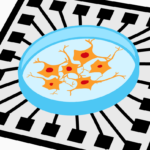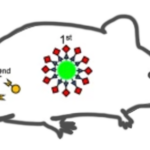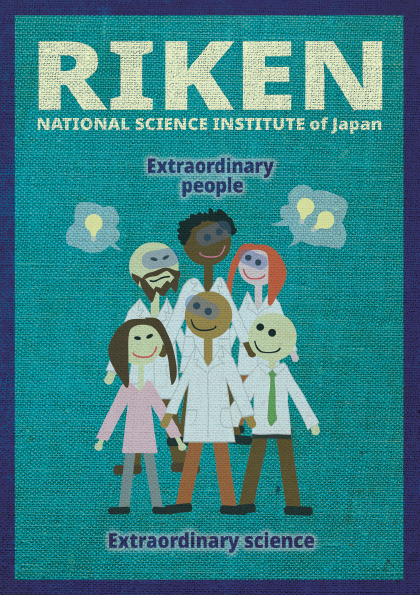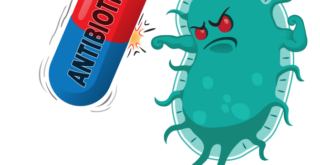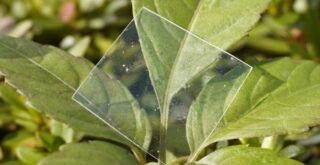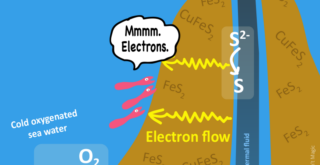Two months of lab work under the State of Emergency
From April 8 to June 7 last year when the campus closed, everyone had to shift to work remotely, and we had to suspend our experimental work. One of the focuses in our lab is studying how gene expression in tissue cells changes with aging, using the mouse as a model. We were also starting to generate data on changes in the epigenome (a mechanism that controls gene expression without changing the DNA base sequence) with age, when the campus closed. We were very fortunate that we did not have to dispose of any of our important samples, because the cells needed for the analysis had been collected from the mice and frozen. However, we were unable to conduct further experiments, and this delayed our data generation.
In our lab, half of the members perform experiments and the other half analyze the data (bioinformatics). With the change to telecommuting, the researchers and postdocs who were conducting experiments did what they could, such as writing papers and organizing the data they had collected so far. Data analysis using bioinformatics could also be done online. Therefore, our research did not completely grind to a halt, which was fortunate. For technical staff, however, carrying out experiments is their job, and this limited what they could do at home.
Researchers from around the world are united
In the current environment, everyone is doing research under great restrictions. Despite this, I am impressed by the fact that researchers from all over the world have united in the goal of overcoming COVID-19 and are producing various results at an incredible pace.
This may be an opportunity for us to change the way we conduct research. I am a great believer in the fact that the research a single laboratory can do is limited, but by joining forces through collaborations, we can do much more. Great teamwork would allow us to tackle big problems around the world, sharing datasets and analyzing data. I am absolutely sure open science will become an even more important trend going forward, and I sincerely hope that we, as RIKEN, as Japan, can keep up with this trend.
Telecommuting with my five-year-old daughter
I have a five-year-old daughter, and her nursery school was also closed during the seven weeks of the State of Emergency. Working while watching after her by myself was one of the most challenging things I have done in my life. During online meetings, I had to leave her alone for an extended amount of time, and she would watch videos (YouTube rather) or made drawings. I felt guilty that I wasn’t looking after or paying attention to her as well as I should be. It also coincided with a funding application deadline, and it was especially difficult to find the time to focus on writing applications while spending time with my daughter, which meant trying to write with constant interruptions. Without doubt, I could not write as well usual and felt it is almost impossible to compete with those who do not have as many obstructions.
The combination of guilty conscious, pressure of the deadline, the need to constantly keep up with incoming new information surrounding COVID-19 at RIKEN, the need to make sure if everyone in the lab was doing okay, mounted to be an immense amount of stress. During the “stay-home” period, I believe many people experienced a similar level of stress. There have been reports that the burden fell disproportionately on mothers compared to fathers, and this may have been exemplified during the shutdown in many households. I feel more strongly than ever that there is a need to rectify this.
From epigenomics to vaccines and therapeutics
Through my own research, I hope I can contribute to overcoming COVID-19. The virus is known to enter cells by binding to a cell surface receptor called ACE2. The more of those receptors we have, the easier it is for the virus to invade cells. In our research, with mice, we have found that the expression of various genes increases with age. The epigenomic changes that take place with age result in genes that were not expressed when young (i.e., genes that should not be expressed) being gradually expressed with age. I hypothesized that one of the possible reasons why the elderly are more susceptible to severe COVID-19 is because the ACE2 gene is upregulated, increasing the number of ACE2 receptors and allowing more viruses to enter the cells. At about the same time, a paper was published by an overseas group supporting this hypothesis, suggesting our research in mice could contribute to tackling COVID-19. Changing the environment can change the state of the epigenome, and although we do not directly work on COVID-19, I hope our research on aging could indirectly lead to the development of vaccines and therapeutic drugs.
■ Based on an interview with RIKEN IMS Team Leader Aki Minoda. This article appeared as part of a series in the January issue of RIKEN News ■
In our lab, half of the members perform experiments and the other half analyze the data (bioinformatics). With the change to telecommuting, the researchers and postdocs who were conducting experiments did what they could, such as writing papers and organizing the data they had collected so far. Data analysis using bioinformatics could also be done online.
Therefore, our research did not completely grind to a halt, which was fortunate. For technical staff, however, carrying out experiments is their job, and this limited what they could do at home.
Researchers from around the world are united
In the current environment, everyone is doing research under great restrictions. Despite this, I am impressed by the fact that researchers from all over the world have united in the goal of overcoming COVID-19 and are producing various results at an incredible pace.
This may be an opportunity for us to change the way we conduct research. I am a great believer in the fact that the research a single laboratory can do is limited, but by joining forces through collaborations, we can do much more. Great teamwork would allow us to tackle big problems around the world, sharing datasets and analyzing data. I am absolutely sure open science will become an even more important trend going forward, and I sincerely hope that we, as RIKEN, as Japan, can keep up with this trend.
Telecommuting with my five-year-old daughter
I have a five-year-old daughter, and her nursery school was also closed during the seven weeks of the State of Emergency. Working while watching after her by myself was one of the most challenging things I have done in my life. During online meetings, I had to leave her alone for an extended amount of time, and she would watch videos (YouTube rather) or made drawings. I felt guilty that I wasn’t looking after or paying attention to her as well as I should be. It also coincided with a funding application deadline, and it was especially difficult to find the time to focus on writing applications while spending time with my daughter, which meant trying to write with constant interruptions. Without doubt, I could not write as well usual and felt it is almost impossible to compete with those who do not have as many obstructions.
The combination of guilty conscious, pressure of the deadline, the need to constantly keep up with incoming new information surrounding COVID-19 at RIKEN, the need to make sure if everyone in the lab was doing okay, mounted to be an immense amount of stress. During the “stay-home” period, I believe many people experienced a similar level of stress. There have been reports that the burden fell disproportionately on mothers compared to fathers, and this may have been exemplified during the shutdown in many households. I feel more strongly than ever that there is a need to rectify this.
From epigenomics to vaccines and therapeutics
Through my own research, I hope I can contribute to overcoming COVID-19. The virus is known to enter cells by binding to a cell surface receptor called ACE2. The more of those receptors we have, the easier it is for the virus to invade cells. In our research, with mice, we have found that the expression of various genes increases with age. The epigenomic changes that take place with age result in genes that were not expressed when young (i.e., genes that should not be expressed) being gradually expressed with age. I hypothesized that one of the possible reasons why the elderly are more susceptible to severe COVID-19 is because the ACE2 gene is upregulated, increasing the number of ACE2 receptors and allowing more viruses to enter the cells. At about the same time, a paper was published by an overseas group supporting this hypothesis, suggesting our research in mice could contribute to tackling COVID-19. Changing the environment can change the state of the epigenome, and although we do not directly work on COVID-19, I hope our research on aging could indirectly lead to the development of vaccines and therapeutic drugs.
■ Based on an interview with RIKEN IMS Team Leader Aki Minoda. This article appeared as part of a series in the January issue of RIKEN News ■





